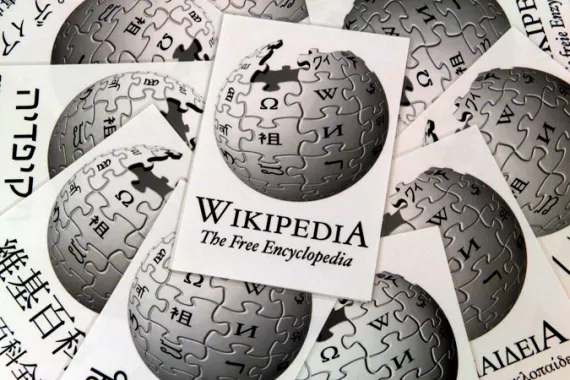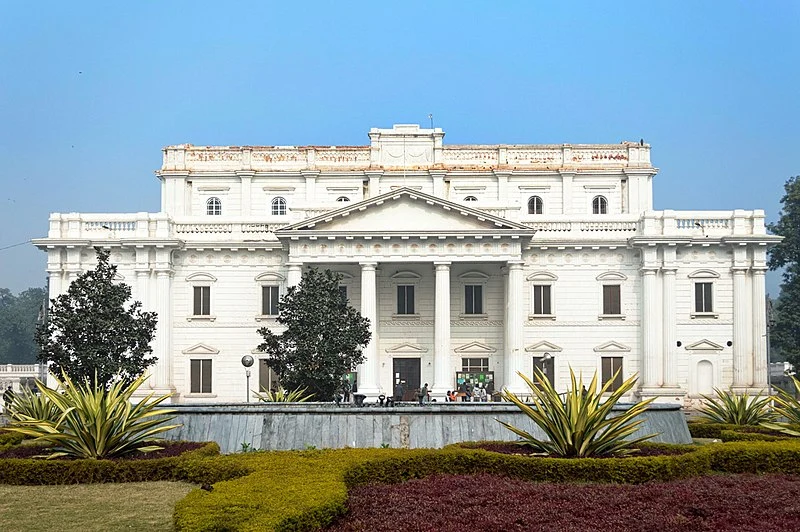
Pakistan has banned Wikipedia after threatening the crowd-sourced online encyclopedia over what it has labelled “sacrilegious content”, the Wikimedia Foundation announced on Saturday.
Social media giants Facebook and YouTube have also been blocked in the past by the Pakistan Telecommunication Authority over content deemed blasphemous, a highly sensitive issue in Muslim-majority Pakistan. Their ban was lifted.
According to local media outlet Dawn, a PTA spokesperson said the website was blocked on Saturday due to non-compliance with the institution’s order.
The PTA on Wednesday said the website had until late Friday to heed the warning, without elaborating on the content in question.
“PTA has degraded Wikipedia services in the country on account of not blocking/removing sacrilegious contents,” the authority added.
The website has previously faced restrictions on some of its pages.
In response to the PTA, the Wikimedia Foundation – which runs Wikipedia – called on Pakistani authorities to restore access to the website.
“We believe that access to knowledge is a human right. A block of Wikipedia in Pakistan denies the 5th most populous nation in the world access to the largest free knowledge repository,” it posted on Twitter on Saturday.
“We hope that the Pakistan government joins us in a commitment to knowledge as a human right and restores access to Wikipedia and Wikimedia projects promptly, so that the people of Pakistan can continue to receive and share knowledge with the world.”
Pakistanis on social media criticised the decision as a “regressive” move and an embarrassment to the country’s global image.
Freedom of speech advocates have long criticised what they say is creeping government censorship and control of Pakistan’s internet and printed and electronic media.
Pakistan blocked YouTube from 2012 to 2016 after it carried a film about the Prophet Muhammad that led to violent protests across the Muslim world.
In 2020, Pakistani regulators had asked YouTube to immediately block all videos they consider “objectionable” from being accessed in the country, a demand criticised by rights campaigners.
In recent years, the country has also blocked the wildly popular video-sharing app TikTok several times over “indecent” and “immoral” content.
The app, owned by China-based ByteDance, has been downloaded millions of times in Pakistan.

On Friday, February 3, 2023, Pakistan’s Telecommunications Authority blocked Wikipedia and Wikimedia projects. The Wikimedia Foundation calls on Pakistan to restore access to Wikipedia and Wikimedia projects in the country immediately.
The Wikimedia Foundation received a notification from the Pakistan Telecommunication Authority on February 1, 2023, stating “the services of Wikipedia have been degraded for 48 hours” for failure to remove content from the site deemed “unlawful” by the government. The notification further mentioned that a block of Wikipedia could follow, if the Foundation failed to comply with the takedown orders. As of Friday, February 3, our internal traffic reports indicate that Wikipedia and Wikimedia projects are no longer accessible to users in Pakistan.
The Wikimedia Foundation believes that access to knowledge is a human right. Wikipedia is the world’s largest online encyclopedia, and the main source of trusted information for millions. It’s an ever-growing record of history, and gives people from all backgrounds the opportunity to contribute to everyone’s understanding of their religion, heritage, and culture.
In Pakistan, English Wikipedia receives more than 50 million pageviews per month, followed by Urdu and Russian Wikipedias. There is also a sizable and engaged community of editors in Pakistan that contribute historical and educational content. A block of Wikipedia in Pakistan denies the fifth most populous nation in the world access to the largest free knowledge repository. If it continues, it will also deprive everyone access to Pakistan’s knowledge, history, and culture.
Wikipedia is written by nearly 300,000 volunteer editors. Together, this global community of volunteers has designed robust editorial guidelines that require strict citations and references to verified sources of information. Content on Wikipedia is mined from secondary sources; it does not allow original research. The community is guided by values of neutrality, reliability, and equitable access to information.
The Wikimedia Foundation does not make decisions around what content is included on Wikipedia or how that content is maintained. This is by design to ensure that articles are the result of many people coming together to determine what information should be presented on the site, resulting in richer, more neutral articles. We respect and support the editorial decisions made by the community of editors around the world. There are dedicated response channels available to individuals, organizations, or governments that would like to raise concerns about the site’s content directly with volunteer editors for their consideration and review. This contributes to Wikipedia’s transparency and upholds its collaborative model.
We hope that the Pakistan government joins with the Wikimedia Foundation in a commitment to knowledge as a human right and restores access to Wikipedia and Wikimedia projects promptly, so that the people of Pakistan can continue to receive and share knowledge with the world.





